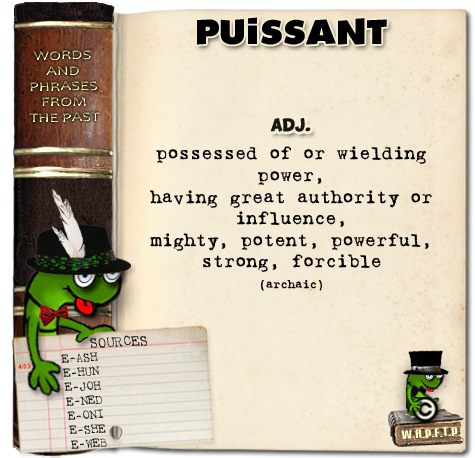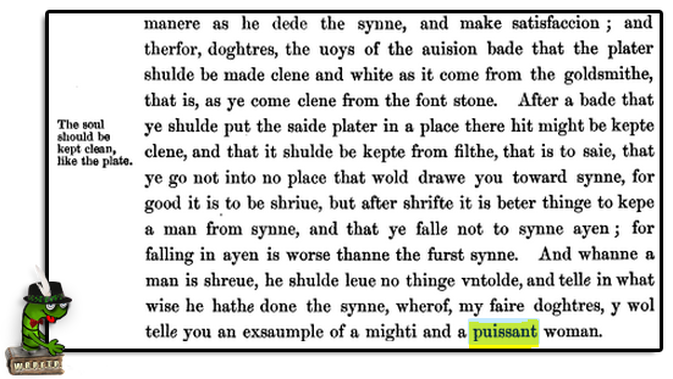|
also PISSANT, PUISANT, PUISSAUNT, PUISSAUNTE, PUSANT, PUSAUNT, PUSAUNTE, PUSSANT (Scottish), PUYSANT, PUYSAUNT, PUYSAUNTE, PUYSSAUNT CLICK HERE FOR KEY TO SOURCES Pronunciation of PUISSANT From E-NED: from French puissant, earlier poissant, also possant, pussant, poussant (Godef. Compl.):—Romanic type *possentem, pr. pple. of Latin posse to be able, substituted for Latin potentem. Some scholars explain the French form in puiss- as influenced by the verbal forms puis, puisse: others suppose a Romanic *possient-em for possent-em. The French puissant is a disyllable (pwisɑ̃), as is also historically the Eng. (pwɪˈsɑːnt, ˈpwɪsənt), from 15th c. to Matthew Arnold; so always in Sidney, Shakes., Drayton, and Milton, while Henry More, Shenstone, and others have (pjuːˈɪsənt), in 3 syllables; one or other of these was approved by all 18th c. orthoepists except Sheridan and Walker; these, following Spenser, give (ˈpjuːɪsənt), which is generally preferred by later dictionaries. a 1450 - The Book of the Knight of La Tour-Landry; see Example below From: The Book of the Knight of La Tour-Landry
Translated from the Original French into English in the Reign of Henry VI, Edited by Thomas Wright, Published for the Early English Text Society, 1868 Chapter VIII P. 12
0 Comments
Leave a Reply. |
Archives
September 2021
|




